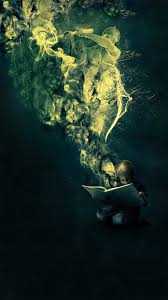Still Believing II
I believe human freedom is narrowly circumscribed, channeled, confined by genetic inheritance, by the resources available for clothing, shelter, nourishment, safety, and above all shaped — by the values absorbed from the birth family, and mores of the zeitgeist into which I was born. None of these factors were and are, within my discretion. For example: I was born a Caucasian male. My birth family lived in a medium sized Southern blue-collar town at the end of World War II. Mom and dad came to adulthood in a rural community, in relative poverty. The ethic of rugged individualism, the individual thrown back upon his/her resources of will, patience, of experience was widely held and practiced by everyone that I knew, as I came to adulthood.
This is to say all of this figures into my ability to construct a response to the challenge thrown up by life: What do you want/who are you? My thought processes, my associations of what qualifies as beautiful, of what qualifies as meaningful are channeled with near certainty by the accidents of birth, the happenstance of life’s circumstances. Those factors are my default.
Is there a sliver of daylight between the tight fit of cause and effect, of genetics, gender, God n’ country patriotism, the givens of my heritage? Are there only causes? Are there no reasons for anything that I do, for what I have become? What comes with the gift of language and the mind’s ability to manipulate symbols? Does language, the ability to indwell the minds of others, both my contemporaries, and those who have passed before me allow a spectrum of options to be present to my imagination?
When I listen a story about experiences foreign to me (especially when I travel) or when I read a text composed by a witness from a time past, I ask myself, “what would that be like or what would I have done?”
I believe imagination (un-reason) and reason offer prospect for change within the interstices of the brute given of a time and a place in history. If you can  envision an alternative to what you know, then you can begin to take a small step to alter your direction of forward movement. Especially within the realms of meaning and beauty it is possible to hear different voices calling, and one can say “yes,” in a qualified manner, to alter the course of one’s life. In thought reason and un-reason are linked together.
envision an alternative to what you know, then you can begin to take a small step to alter your direction of forward movement. Especially within the realms of meaning and beauty it is possible to hear different voices calling, and one can say “yes,” in a qualified manner, to alter the course of one’s life. In thought reason and un-reason are linked together.
It is possible to indwell the mind of Shakespeare when one reads or is present for a performance of Hamlet? Shakespeare in his turn indwelt the minds of the great playwrights of Greek epics and dramas. Can you still hear the echo of the Oracle at Delphi in the scene of the three witches casting a spell in Macbeth act 4 scene 1, mixing a concoction of rumor and innuendo?
Such freedom of the imagination affords the possibility of genuine change, liberates us from the chains of the past. We are not prisoners of fate.
To digress a bit, I have a text called the Hagakure Kikigake, (Hidden by Leaves) written by a 18th century samurai Yamamoto Tsunetomo. The book is a practical and spiritual guide for a warrior. I read that Tsunetomo connects aesthetic appreciation with ethical behavior. I anticipate that my life will be changed in indeterminate ways as a result of reading the old book.
*** (continued)